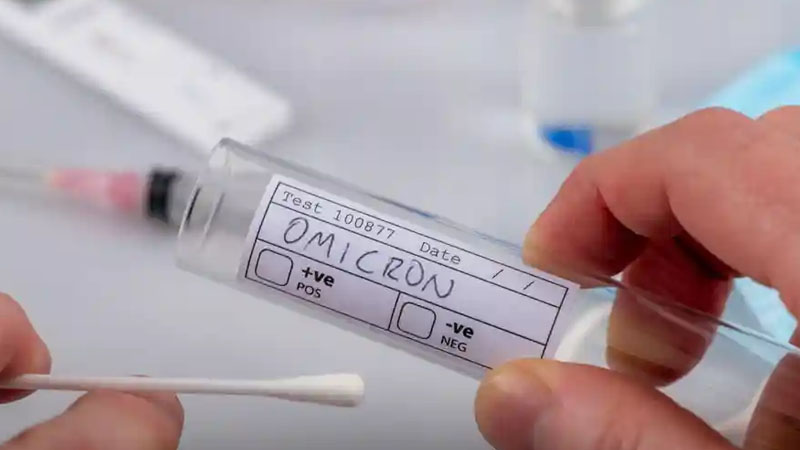EXPLAINER-Should we be concerned about the Omicron variant?

Photograph: Thomas Faull/Alamy Live News/Alamy Live News.
The new Omicron coronavirus variant, discovered first in South Africa but also found in Europe and Asia, is causing concern around the world due to the number of mutations that may aid in its spread or even evade antibodies from prior infection or vaccination.
On Friday, countries announced new travel restrictions in response to the variant, and drug makers scrambled to see if their COVID-19 vaccines were still protective.
WHY ARE SCIENTISTS WORRIED?
The World Health Organization classified the B.1.1.529 variant, or Omicron, as a SARS-CoV-2 “variant of concern,” on Friday, saying it could spread faster than other types of coronavirus.
The Delta variant remains dominant worldwide, accounting for 99.9% of cases in the United States, and it is uncertain whether Omicron will be able to displace Delta, according to Dr. Graham Snyder, medical director of infection prevention and hospital epidemiology at the University of Pittsburgh Medical Center.
However, the new variant contains over 30 mutations in the part of the virus that is targeted by current vaccines. It is also suspected of being responsible for an increase in new infections in South Africa.
According to Dr. David Ho, professor of microbiology and immunology at Columbia University, Omicron’s mutations are likely to render certain COVID-19 treatments ineffective, including some manufactured antibodies.
Antiviral pills in progress, such as Pfizer Inc’s Paxlovid and Merck & Co Inc’s molnupiravir, target parts of the virus that are unchanged in Omicron, and these drugs could become even more important if vaccine-induced and natural immunity are damaged.
THE UNKNOWNS
Scientists believe it will be several weeks before they can determine the type of disease caused by the variant, how contagious it is, and how far it has already spread.
Some argue that other potentially dangerous variants, such as Beta, which was discovered in South Africa, were eventually supplemented by Delta.
The biggest question is whether the protection provided by COVID-19 vaccines – nearly 8 billion doses have been administered globally – will last. Will people who have previously been infected with the coronavirus be immune to Omicron infection?
Experts are also not sure whether Omicron will cause more or less severe COVID-19 than other coronavirus strains.
BEST RESPONSE?
Omicron has not yet been identified in the United States, but scientists believe it is already available.
Even without the new variant, COVID-19 rates in the United States have risen in recent weeks, primarily in northern states, as people seek shelter indoors to avoid winter weather.
Some countries have taken steps to restrict travel from southern Africa. Individuals should still assess their own vulnerability to COVID and risk tolerance as they make travel plans for the winter holidays, according to Snyder of the University of Pittsburgh Medical Center.
Vaccination, he and others argue, should remain a priority despite concerns about its effectiveness against Omicron, because it is likely that it is still protective to some extent. Everyone should continue to wear masks, stay away from crowds, ventilate rooms, and wash their hands.
“We have all those tools that will work against any variant,” said Dr. Eric Topol, director of the Scripps Research Translational Institute in La Jolla, California.


